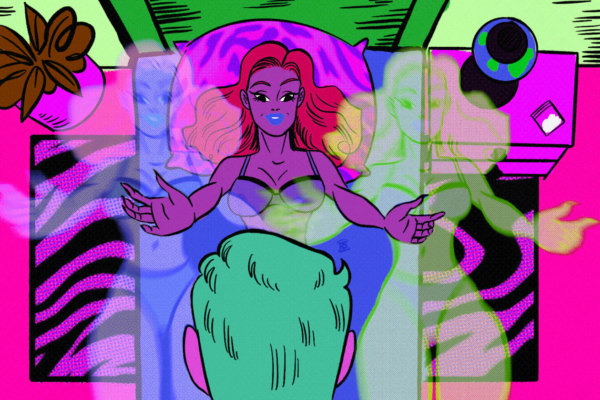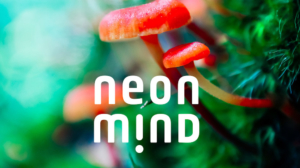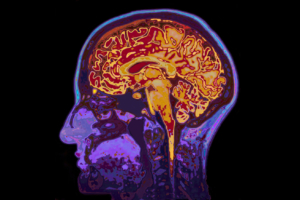
In 2017 novelist and mother Ayelet Waldman published A Really Good Day: How Microdosing Made a Mega Difference in My Mood, My Marriage, and My Life. Since then a growing body of research indicates psychedelics may be able to treat a host of maladies more effectively and more safely than standard treatments. After the book came out, a slate of media coverage and speaking engagements brought attention to mothers taking small amounts of psychedelics to help with depression, anxiety, and other mental health concerns. While better help for mental health is obviously great, there’s an aspect of the trend that most people seemed to ignore –the racism and classism at play in which moms get to microdose.
Psychedelic use is on the rise
In the US in 2018, one study showed almost 16% of the U.S. population over 12 had used a hallucinogen at some point in their lifetime and 2.0% had partaken in the past year. Another study found that more than 30 million US adults used psychedelics. Worldwide, drug use has increased over the past decade, according to the UN. Concurrently, over the past decade there’s been a psychedelic research renaissance. Every year sees new studies showing their potential to help with everything from phantom limb pain to depression to alcohol dependency.
Psychedelic use may have also risen during the pandemic. A study by LifeSearch showed that 10% of UK adults microdosed psychedelics, 43% rise more than before the start of the pandemic. One in four microdosers were treating mental health concerns while one fifth said microdosing helped them parent.
White, upper class people are more likely to use psychedelics
While the stories might center microdosing moms, studies show men are more likely than women to have ever used or currently use psychedelics. Psychedelic use is also more prevalent among white people than non-white people. Black people are the least likely to have ever or currently use psychedelics. High-income, highly educated Americans are also more likely to have used or currently use psychedelics than low-income Americans with less education.
The Drug War is racist and classist as hell
Why might Americans who are Black, low-income, and/or have lower levels of education be less likely to use psychedelics? Probably at least in part because they tend to be well-aware that the criminal justice system disproportionately arrests, prosecutes, convicts, and incarcerates drug users who are Black, low-income, and/or have lower levels of education.
But there’s another important intersection between race, class, and psychedelic use that impacts mothers specifically and hasn’t been adequately addressed in the conversation about microdosing moms.
Child Protective Services is also racist and classist
Child Protective Services demonstrably discriminates along race and class lines. Black mothers and low-income mothers bear the brunt of the investigations and child removal. In one American Public Health Association study, CPS sent three times as many Black children to foster care than white children. This study found that people CPS was much more likely to terminate the parental rights of people who had low incomes, one or more disabilities, struggled with mental health, and/or had non-white children.
The majority of CPS actions are for “neglect” rather than other forms of abuse. The state effectively has the right to take your children away for not having adequate housing, daycare, food, healthcare, and other services.
Separation from biological parents is one of several adverse childhood experiences (ACES) associated with worse outcomes in adulthood. By taking these kids away from their parents and putting them in foster care, the state is vastly increasing their likelihood of suffering from poorer physical health, being incarcerated, having lower income, and a host of other problems.
The state could provide low-income mothers desperately needed material support rather than forcibly taking their children and paying another family to raise them. Not only would this be cheaper for the state in the short and long-term, but more importantly it would be far better for the children.
The APHA study also found that CPS was much more likely to terminate the parental rights of drug users.
Low-income Black mothers face a higher risk of losing their kids just for being poor and Black. Low-income Black mothers who use psychedelics also face a greater risk of arrest and imprisonment along with an even greater likelihood of a CPS investigation or termination of parental rights.
The twin barriers to microdosing for Black moms
There’s mounting evidence that psychedelics are safer and more effective than conventional treatments for depression, anxiety, and other mental health conditions. But the Drug War and CPS discrimination makes these substances extremely dangerous for low-income Black moms.
There’s robust evidence that being Black and poor in the US is extremely stressful. This stress, on top of other systemic barriers, creates or exacerbates mental illness. First systemic racism and classism make people sick. Then a racist and classist system takes their kids and jails them for trying to get better.
As long as it remains this unsafe for low-income Black moms to avail themselves of these substances, they’ll likely continue to be underrepresented among microdosing moms.
It’s great that so many moms are finding help through psychedelics. But we can’t forget the moms excluded from the trend. And we certainly shouldn’t ignore why these moms are excluded. It’s long past time to end the War on Drugs and root out the racism and classism in the criminal justice system and CPS. Let’s celebrate microdosing moms when all moms can microdose safely.
![Psychedelic Capital Conference – How to Watch FREE [ I Just Made the BIG LEAGUES]](https://psychedelicspotlight.com/wp-content/uploads/2022/06/maxresdefault-130-600x338.jpeg)




